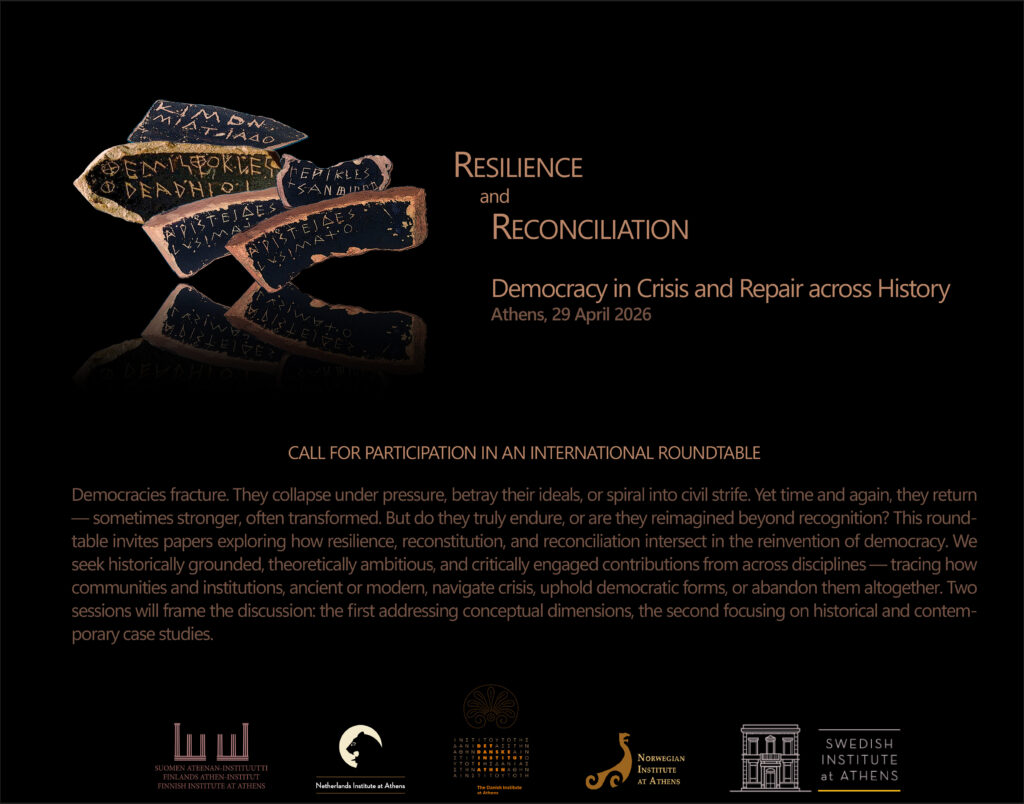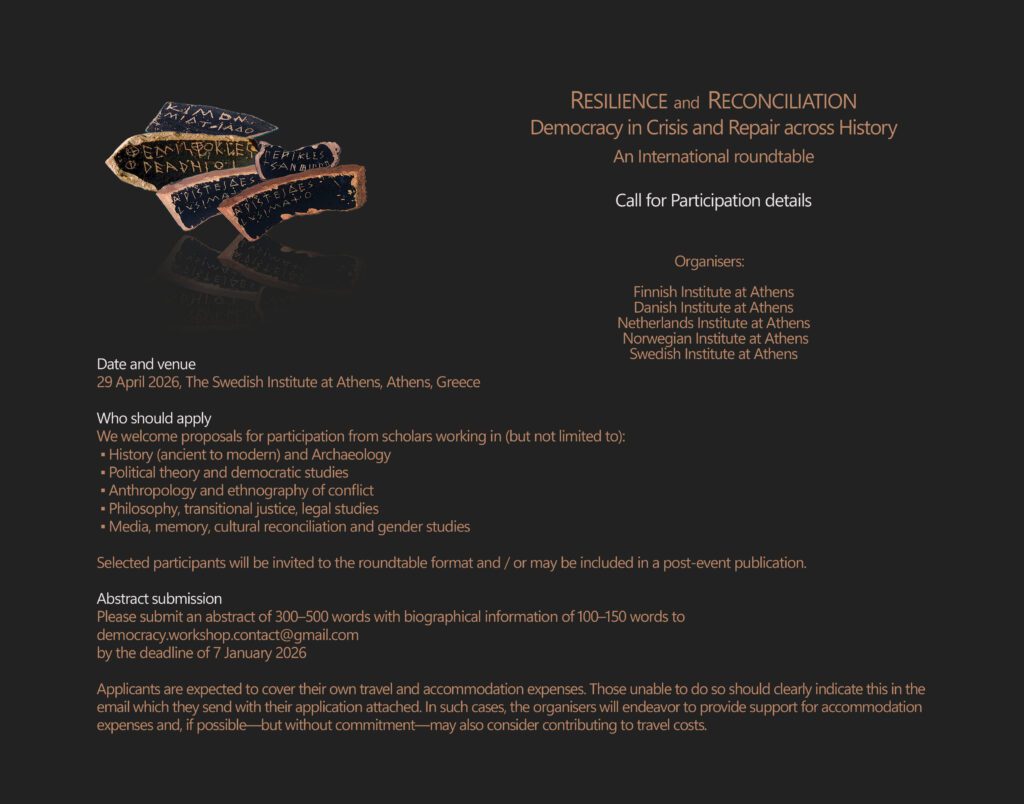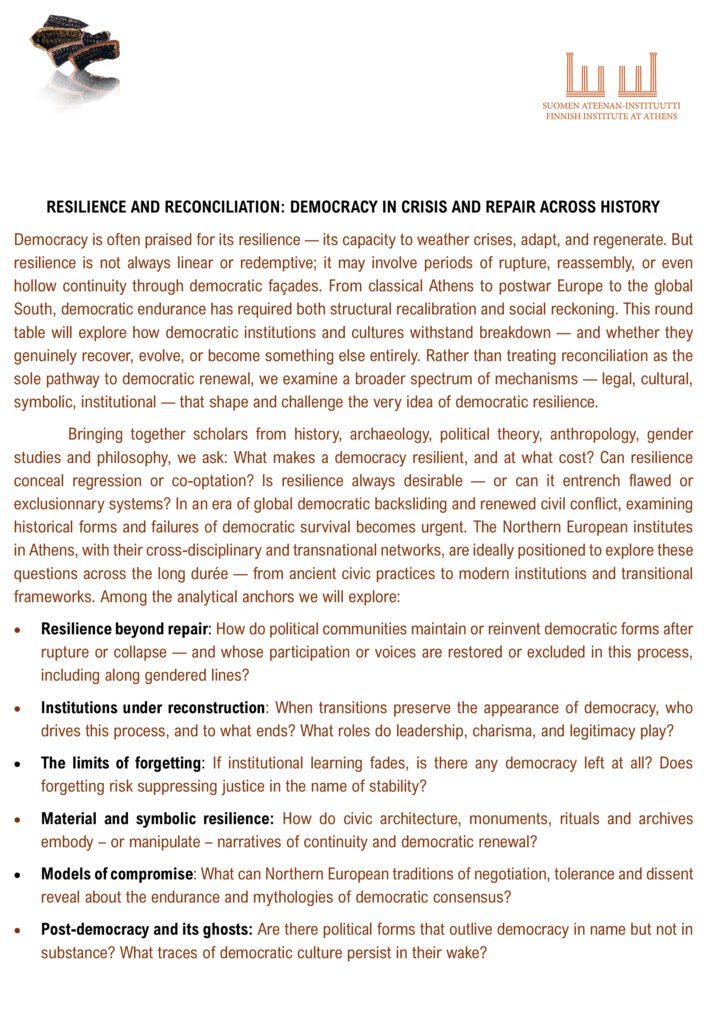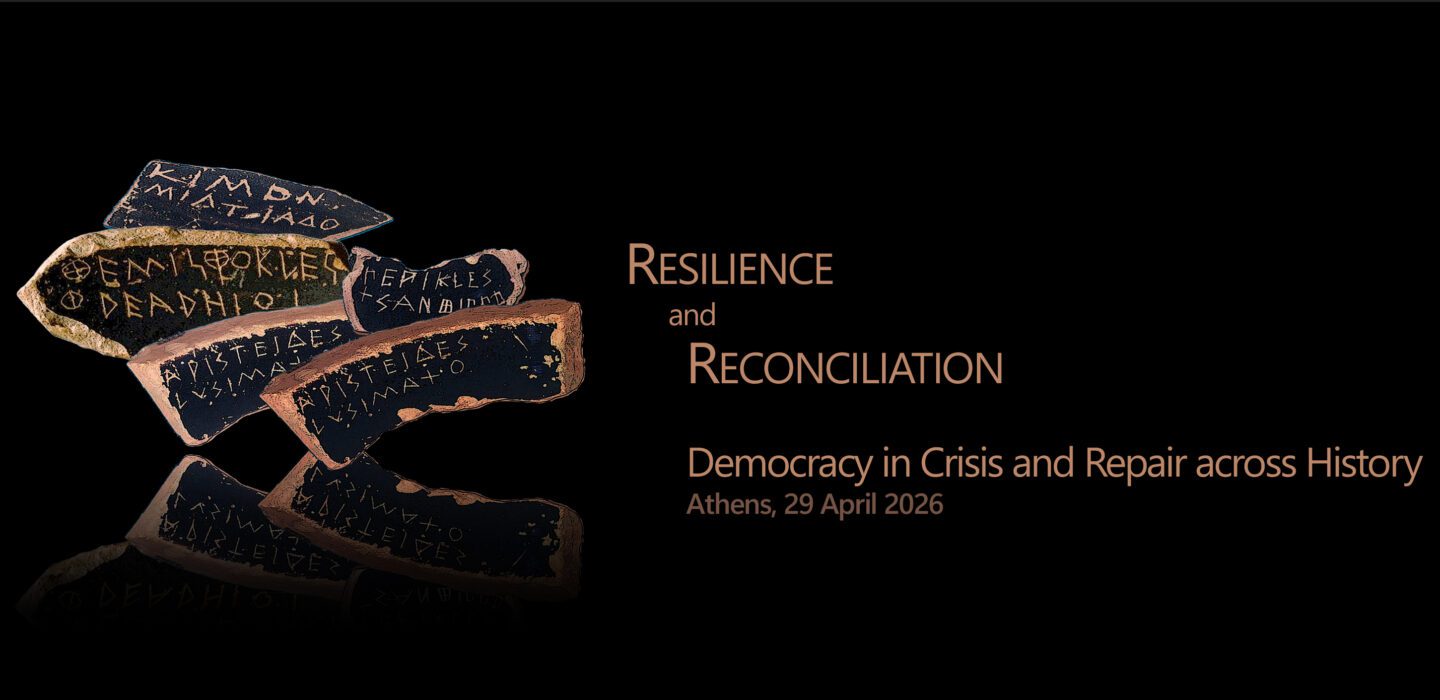The Finnish Institute at Athens, together with the Swedish, Norwegian, Danish and Netherlands Institutes have the pleasure to announce a call for participation in an international roundtable entitled Resilience and Reconciliation – Democracy in Crisis and Repair across History on 29 April 2026 in Athens. Further details below.
Call for participation in an international roundtable
Democracies fracture. They collapse under pressure, betray their ideals, or spiral into civil strife. Yet time and again, they return — sometimes stronger, often transformed. But do they truly endure, or are they reimagined beyond recognition? This roundtable invites papers exploring how resilience, reconstitution, and reconciliation intersect in the reinvention of democracy. We seek historically grounded, theoretically ambitious, and critically engaged contributions from across disciplines — tracing how communities and institutions, ancient or modern, navigate crisis, uphold democratic forms, or abandon them altogether. Two sessions will frame the discussion: the first addressing conceptual dimensions, the second focusing on historical and contemporary case studies.
Who can apply?
We welcome proposals for participation from scholars working in (but not limited to):
- History (ancient to modern) and Archaeology
- Political theory and democratic studies
- Anthropology and ethnography of conflict
- Philosophy, transitional justice, legal studies
- Media, memory, cultural reconciliation and gender studies
Selected participants will be invited to the roundtable format and / or may be included in a post-event publication.
Abstract submission
Please submit an abstract of 300–500 words with biographical information of 100–150 words to by the deadline of 7 January 2026
Applicants are expected to cover their own travel and accommodation expenses. Those unable to do so should clearly indicate this in the email which they send with their application attached. In such cases, the organisers will endeavor to provide support for accommodation expenses and, if possible—but without commitment — may also consider contributing to travel costs.
Resilience and Reconciliation – Democracy in Crisis and Repair across History
Democracy is often praised for its resilience — its capacity to weather crises, adapt, and regenerate. But resilience is not always linear or redemptive; it may involve periods of rupture, reassembly, or even hollow continuity through democratic façades. From classical Athens to postwar Europe to the global South, democratic endurance has required both structural recalibration and social reckoning. This round table will explore how democratic institutions and cultures withstand breakdown — and whether they genuinely recover, evolve, or become something else entirely. Rather than treating reconciliation as the sole pathway to democratic renewal, we examine a broader spectrum of mechanisms — legal, cultural, symbolic, institutional — that shape and challenge the very idea of democratic resilience.
Bringing together scholars from history, archaeology, political theory, anthropology, gender studies and philosophy, we ask: What makes a democracy resilient, and at what cost? Can resilience conceal regression or co-optation? Is resilience always desirable — or can it entrench flawed or exclusionary systems? In an era of global democratic backsliding and renewed civil conflict, examining historical forms and failures of democratic survival becomes urgent. The Northern European institutes in Athens, with their cross-disciplinary and transnational networks, are ideally positioned to explore these questions across the long durée — from ancient civic practices to modern institutions and transitional frameworks. Among the analytical anchors we will explore:
- Resilience beyond repair: How do political communities maintain or reinvent democratic forms after rupture or collapse — and whose participation or voices are restored or excluded in this process, including along gendered lines?
- The limits of forgetting: If institutional learning fades, is there any democracy left at all? Does forgetting risk suppressing justice in the name of stability?
- Material and symbolic resilience: How do civic architecture, monuments, rituals and archives embody – or manipulate – narratives of continuity and democratic renewal?
- Models of compromise: What can Northern European traditions of negotiation, tolerance and dissent reveal about the endurance and mythologies of democratic consensus?
- Post-democracy and its ghosts: Are there political forms that outlive democracy in name but not in substance? What traces of democratic culture persist in their wake?



